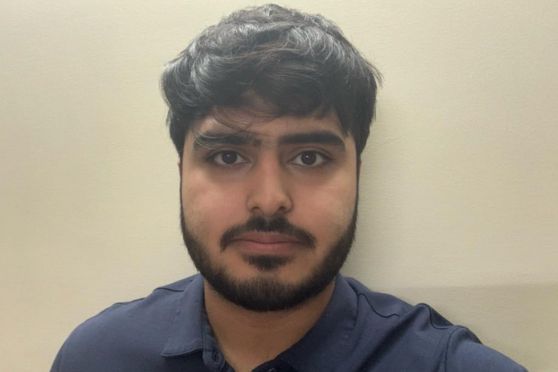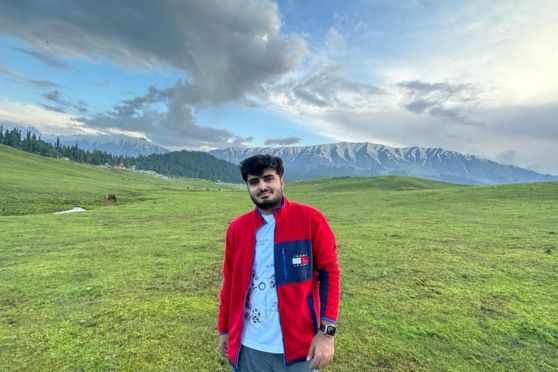Meet Viraj Malik, the 17-year-old who installed 10K Solar Panels in underprivileged homes


In the face of frequent power cuts experienced by rural villages, he took swift action, utilising his classroom knowledge to create opportunities to harness solar energy. His determination led him to install an impressive 10,000 Solar Panel Systems in underprivileged homes in Bhatinda, Punjab. As a result of his relentless efforts, a staggering 40,000 residents in the area now enjoy uninterrupted electricity, available round the clock. Our young achiever of the day is 17 year old Viraj Malik.
At the age where students are thinking about the newest gadget to buy and the trendiest spot in town - Viraj actually delved deeper into his passion by conducting research on the correlation between the socioeconomic backgrounds of Indians and their perception of Solar Technology. This comprehensive study involved evaluating the problem from various perspectives, such as environmental, engineering, and economic aspects. Through his research, he shed light on the intricate relationship between societal backgrounds and the acceptance of solar technology.
The Telegraph Online Edugraph spoke to Viraj about his work and here’s what he had to say.
“In the summer of 2021, I was working with several NGOs trying to create a digital presence for them when everything went online because of the COVID-19 pandemic. During this time, I came to know about the electricity problems in Himachal Pradesh village and how they were unable to operate during this pandemic. A few weeks later, the villagers found help from the Himachal government in the form of Solar Panels that provided them with 24x7 electricity so they could operate their office and education centre.
This interaction made me wonder how solar energy can become the solution to the problem faced by thousands of households in India, and this was my inspiration for Project RenewLife. While installing solar panels in low-income homes, quality control was one of the major problems we faced. At the start of the project, our team encountered several damaged solar panels and batteries. This encouraged us to increase the number of quality control checks and improve the packaging of our equipment so that it is not damaged in transit. These two steps became crucial for our project's success as they reduced damaged equipment by 65% and eventually helped us cut costs. By the end of summer 2022, we had successfully installed 10,000 solar panels in low-income households in Bhatinda, Punjab. This project could not have been possible without the Punjab Energy Development Agency (PEDA), who not only sponsored the entire project but also provided me with a team of field workers and researchers who made this entire project possible”.

Another notable feather in Viraj's hat is Project ReVamp, an independent initiative that showcases his remarkable leadership skills. Against the backdrop of the COVID-19 pandemic, he initiated this project with a unique aim – to enhance the online presence of non-governmental organisations (NGOs) by building websites for them. Viraj's efforts proved invaluable in amplifying the impact of NGOs during those difficult times.
“Before the COVID-19 Pandemic, I was a teaching volunteer at EdLodge, an NGO working towards the education of the underprivileged. As the pandemic erupted in 2020, everything turned digital. However, EdLodge lacked the necessary online presence to handle the situation. The volunteers stopped coming in, and so did the donations. To continue functioning, it became important for EdLodge to have a digital presence. So I was responsible for creating an NGO website and volunteering to teach to help them with their challenges. I developed a completely functional dynamic website for EdLodge using my expertise in HTML, Java, React.js, and CSS. This website had volunteer signup pages, donation gateways, and an overview of all the great work EdLodge has done to draw in more volunteers over the years. In the first six months of the pandemic, Edlodge got over 100 remote volunteers as a result of my website. I was able to generate funds through the donation gateway I built, funding several drives and campaigns. My experience with EdLodge inspired me to start Project ReVamp, a project where I created and revamped websites for NGOs in the education field.” added Viraj.
Over the course of 10-12 months, Viraj successfully redesigned the websites of 6-8 NGOs. Throughout this process, he had the opportunity to collaborate closely with these organisations, gaining invaluable insights into their respective missions and operations
“Since the beginning of high school, I have always been interested in Physics and Economics–these two were my favourite subjects. I will be joining Carnegie Mellon University this fall, and I plan to major in Applied Physics along with Engineering and Public Policy so that I can continue to work in the field of renewable energy in the future and make green technologies like solar panels more accessible to the entire world,” Viraj signed off.
The Telegraph Online congratulates Viraj for his achievements and wishes him the best for his upcoming endeavours.